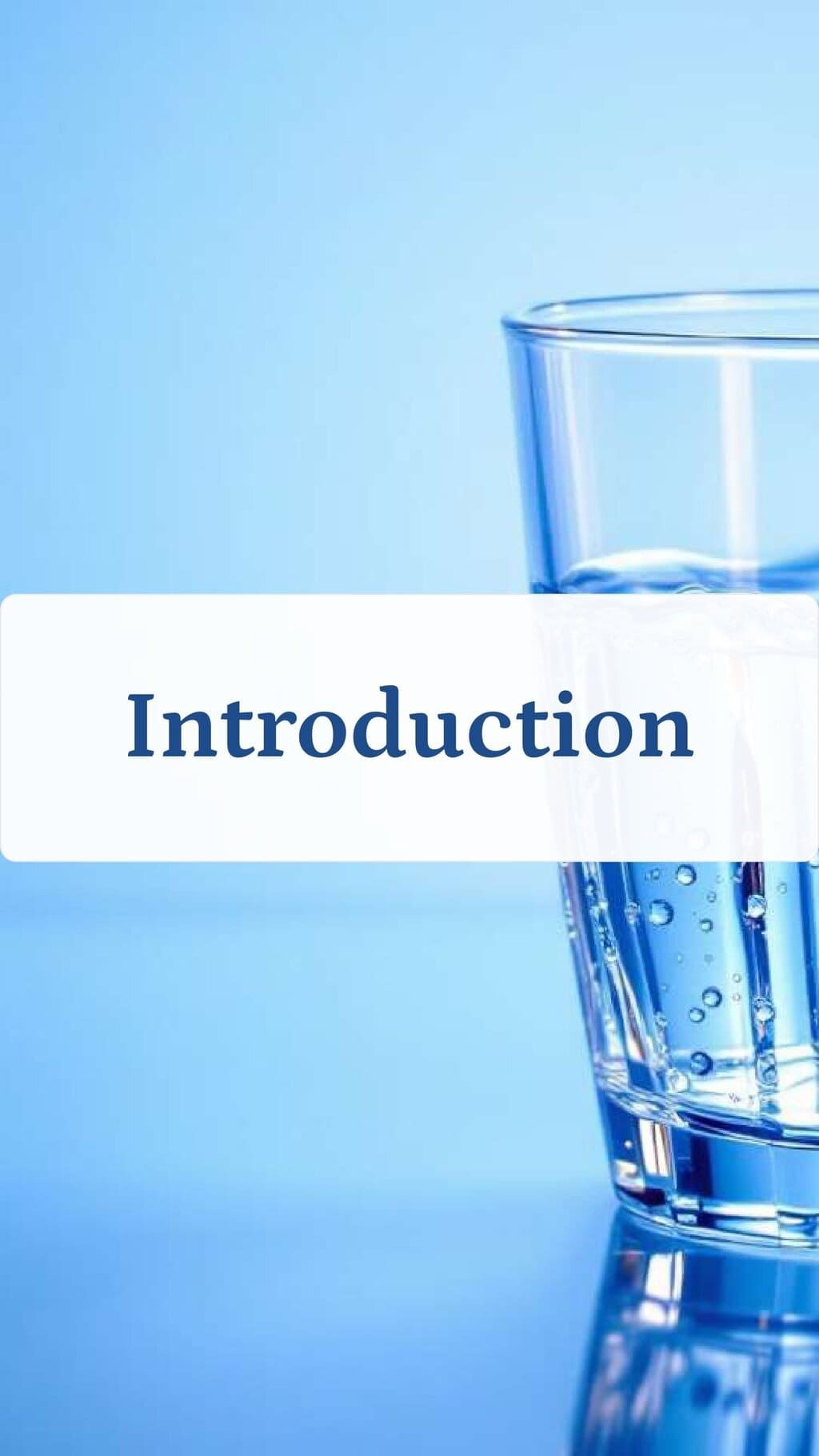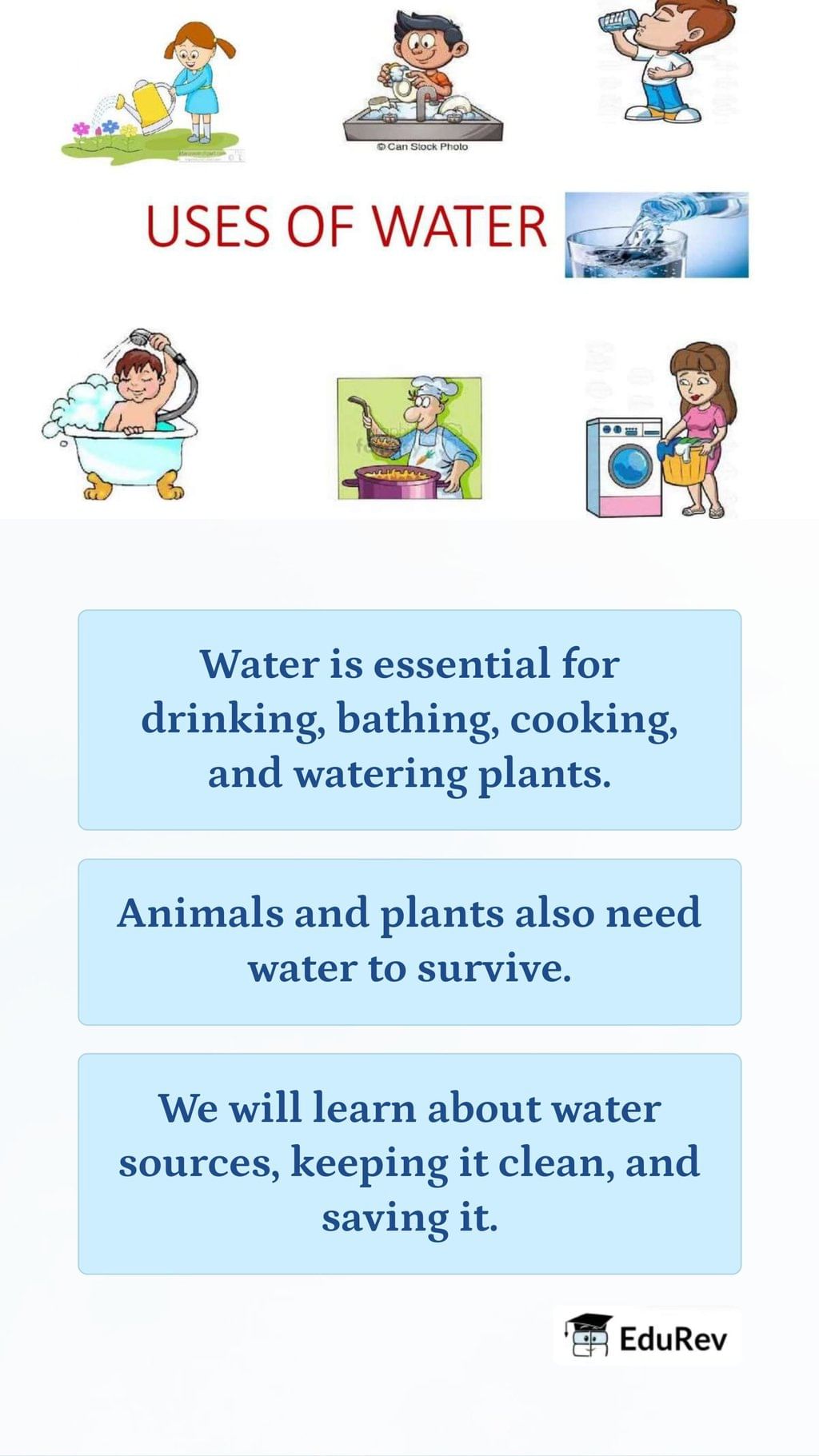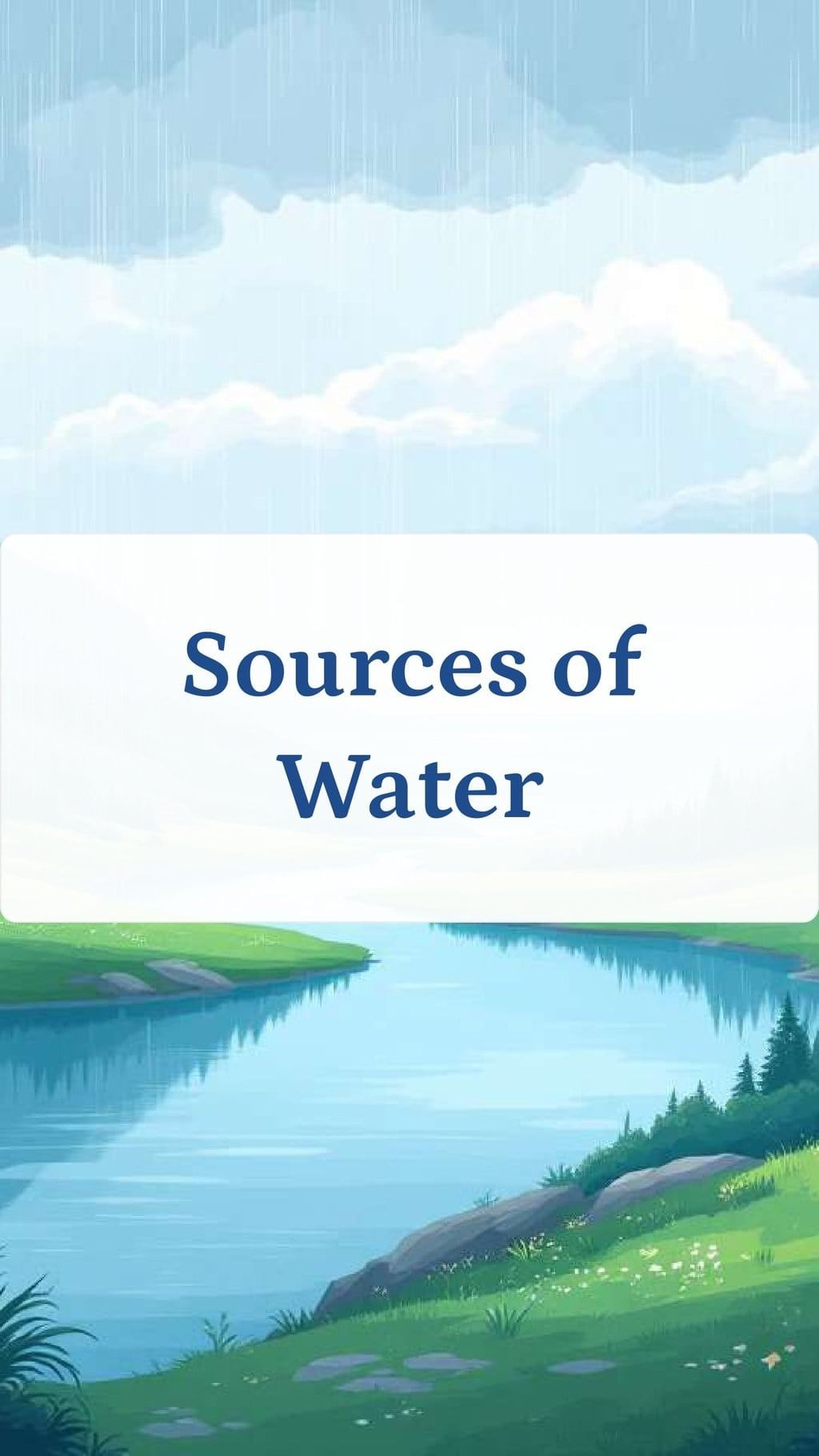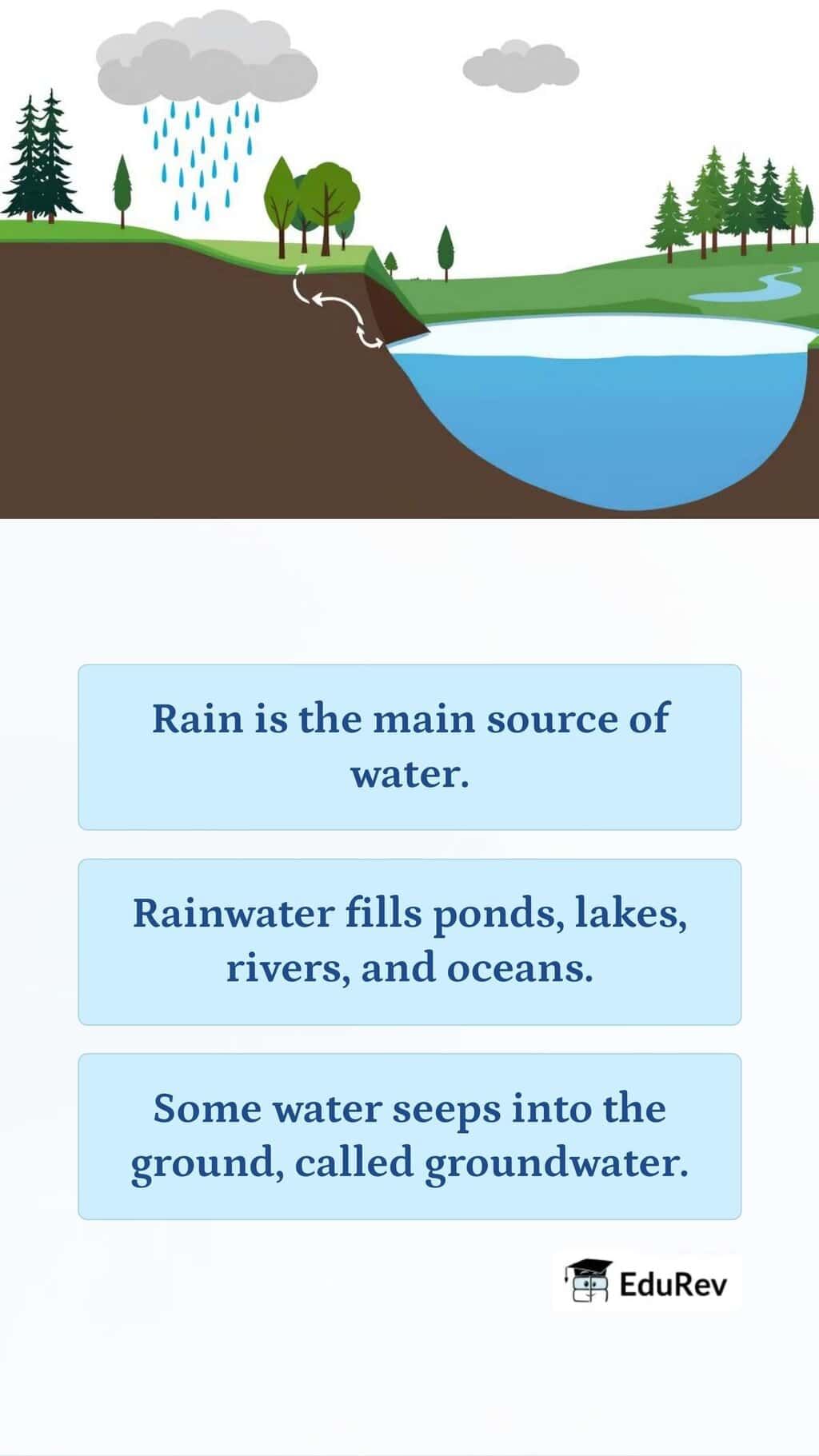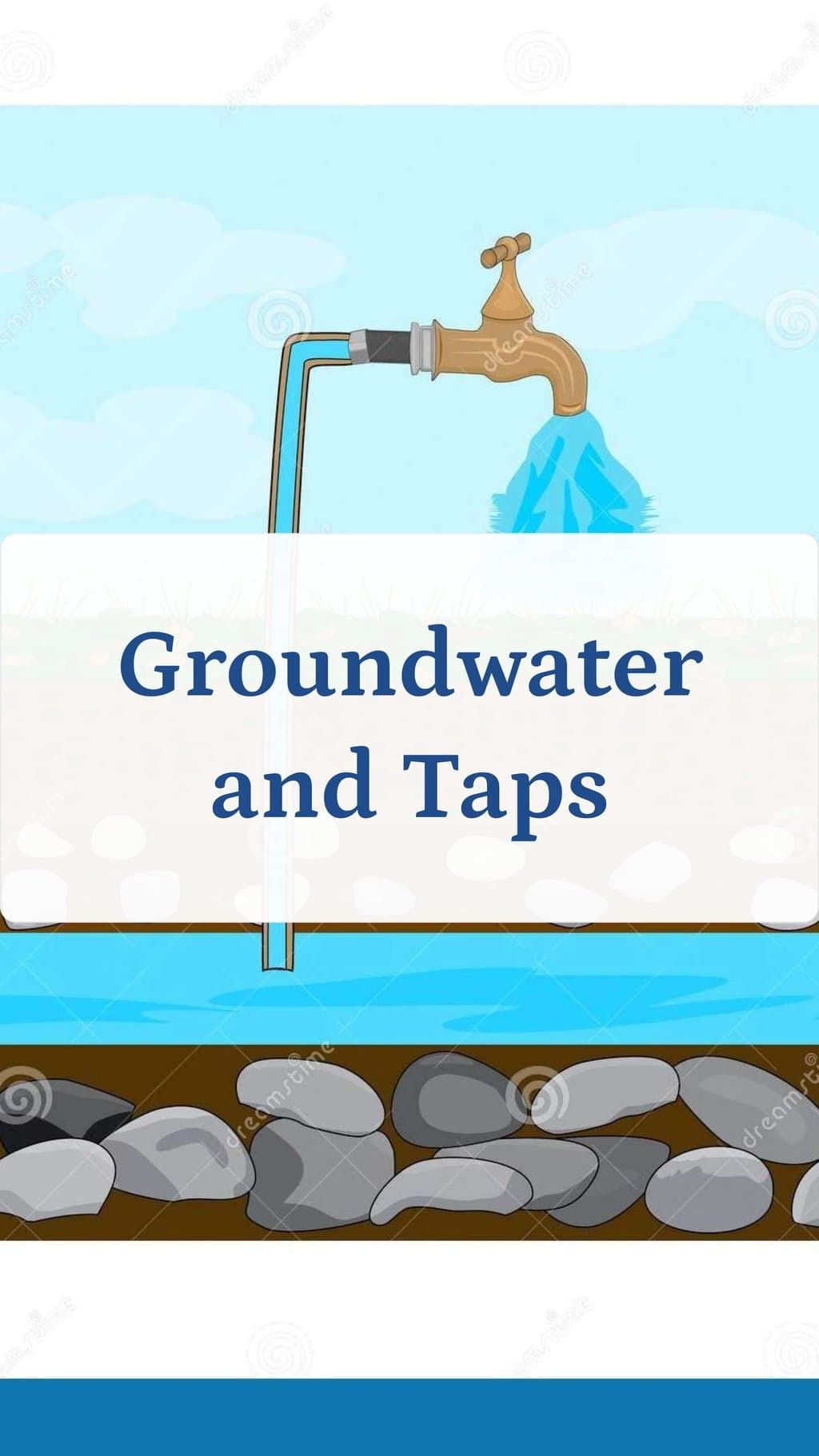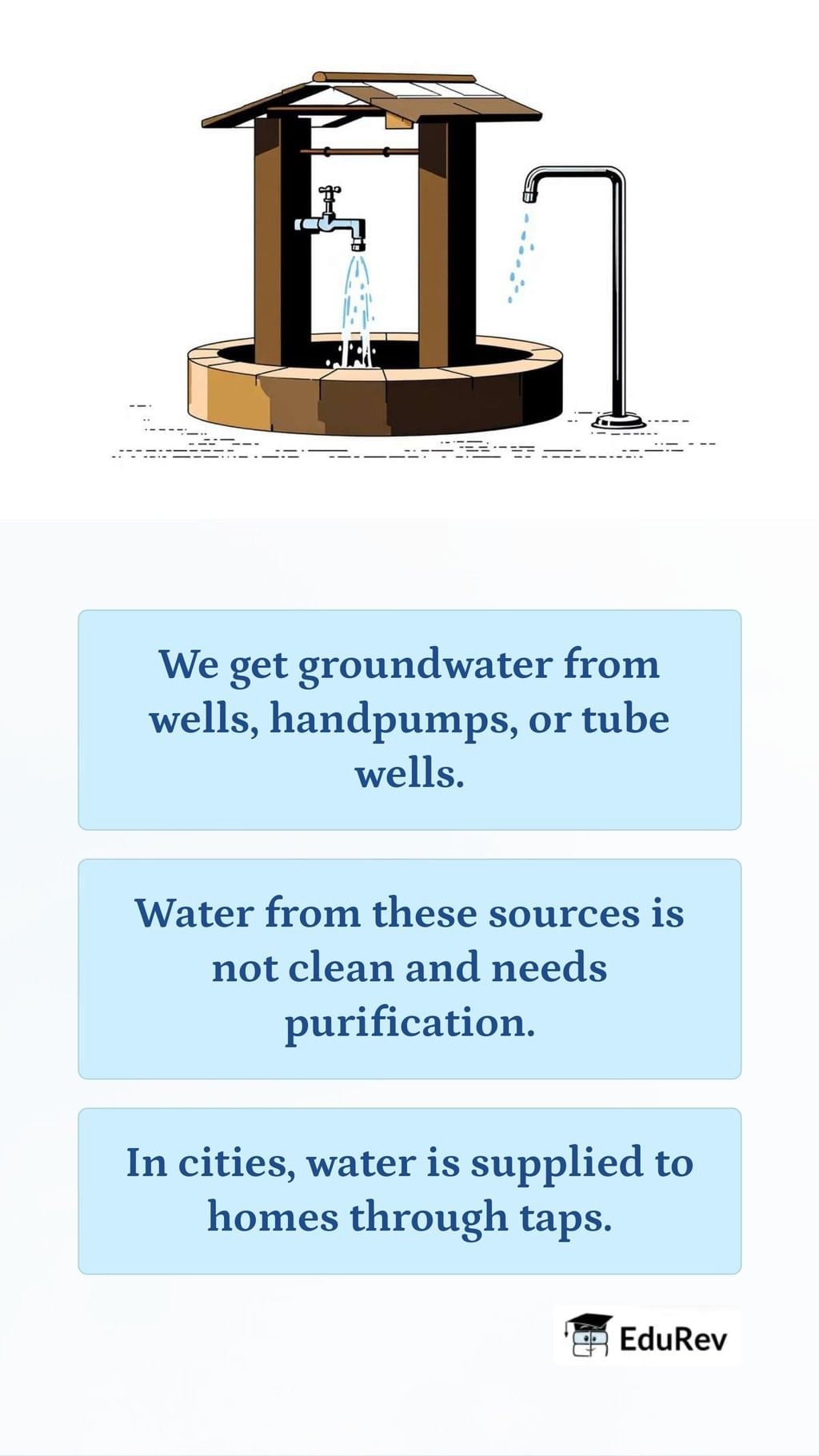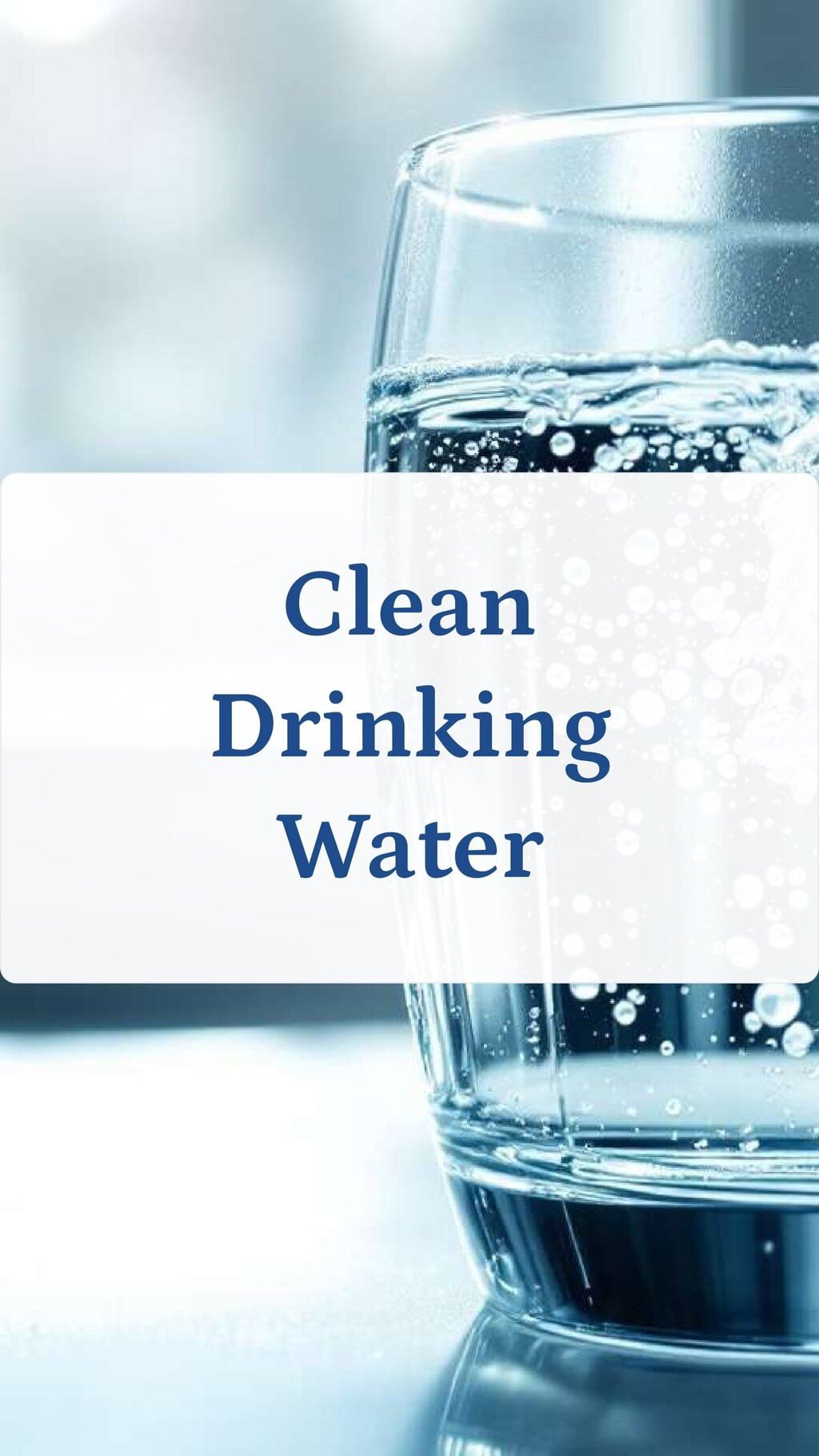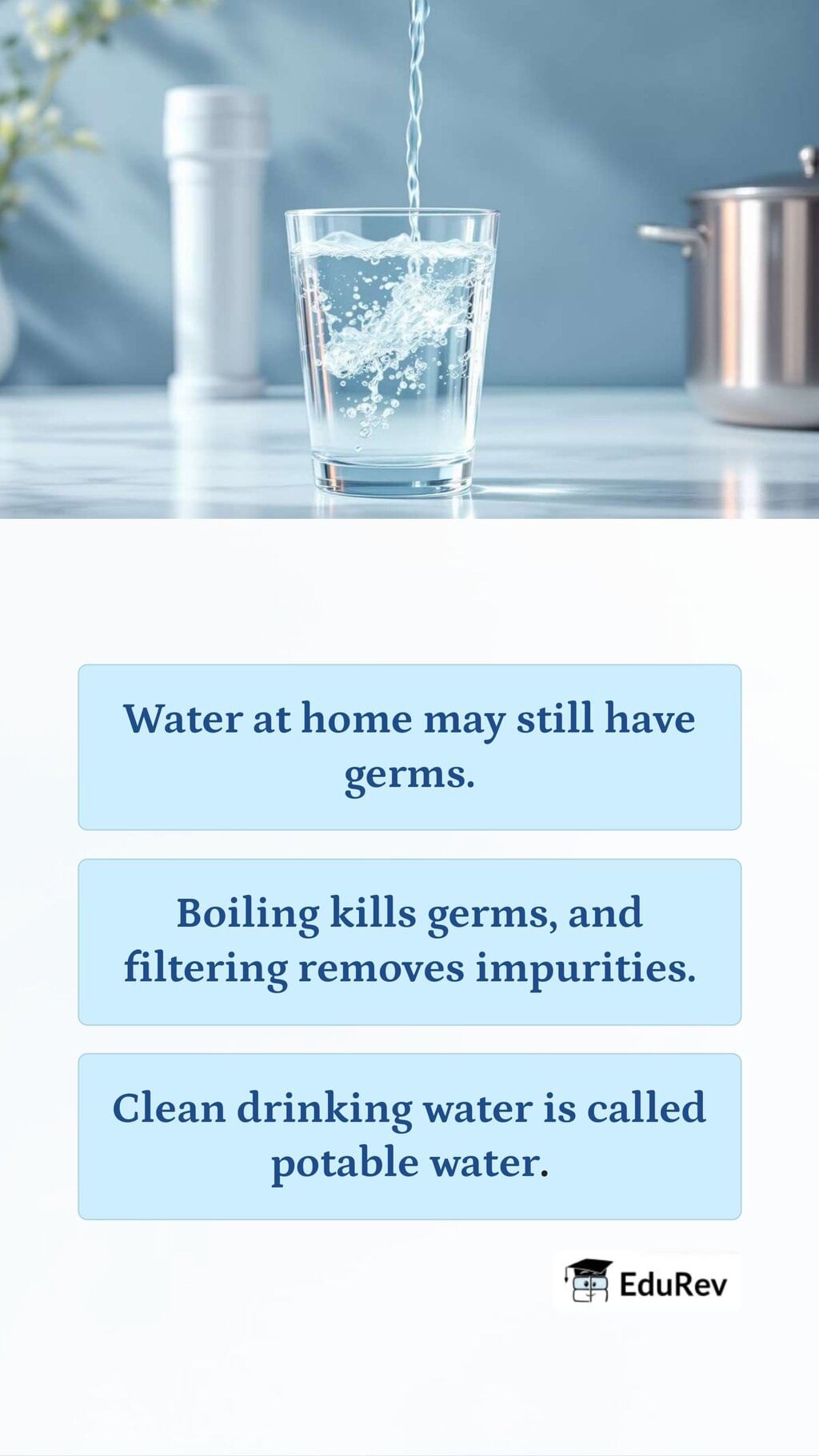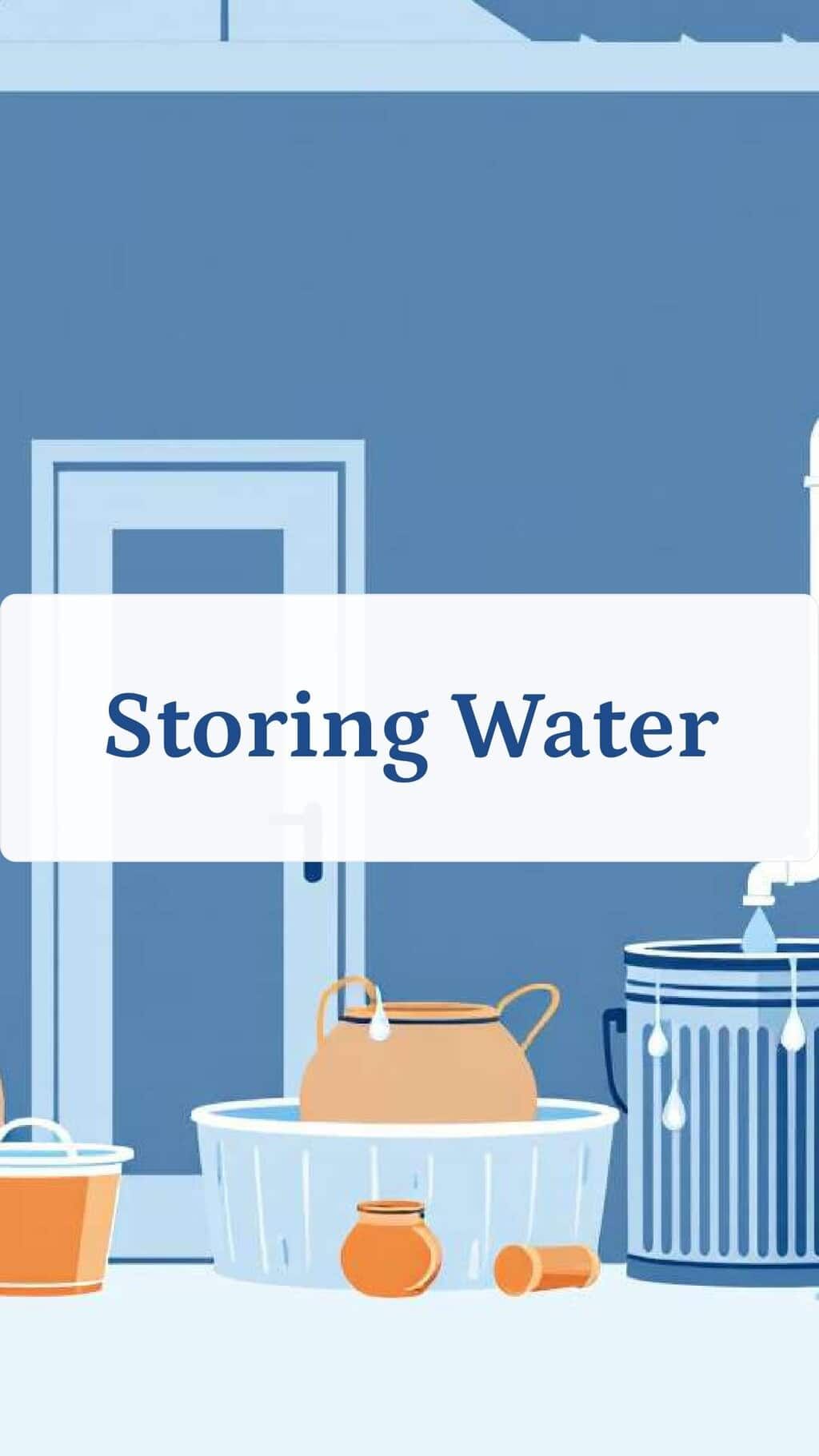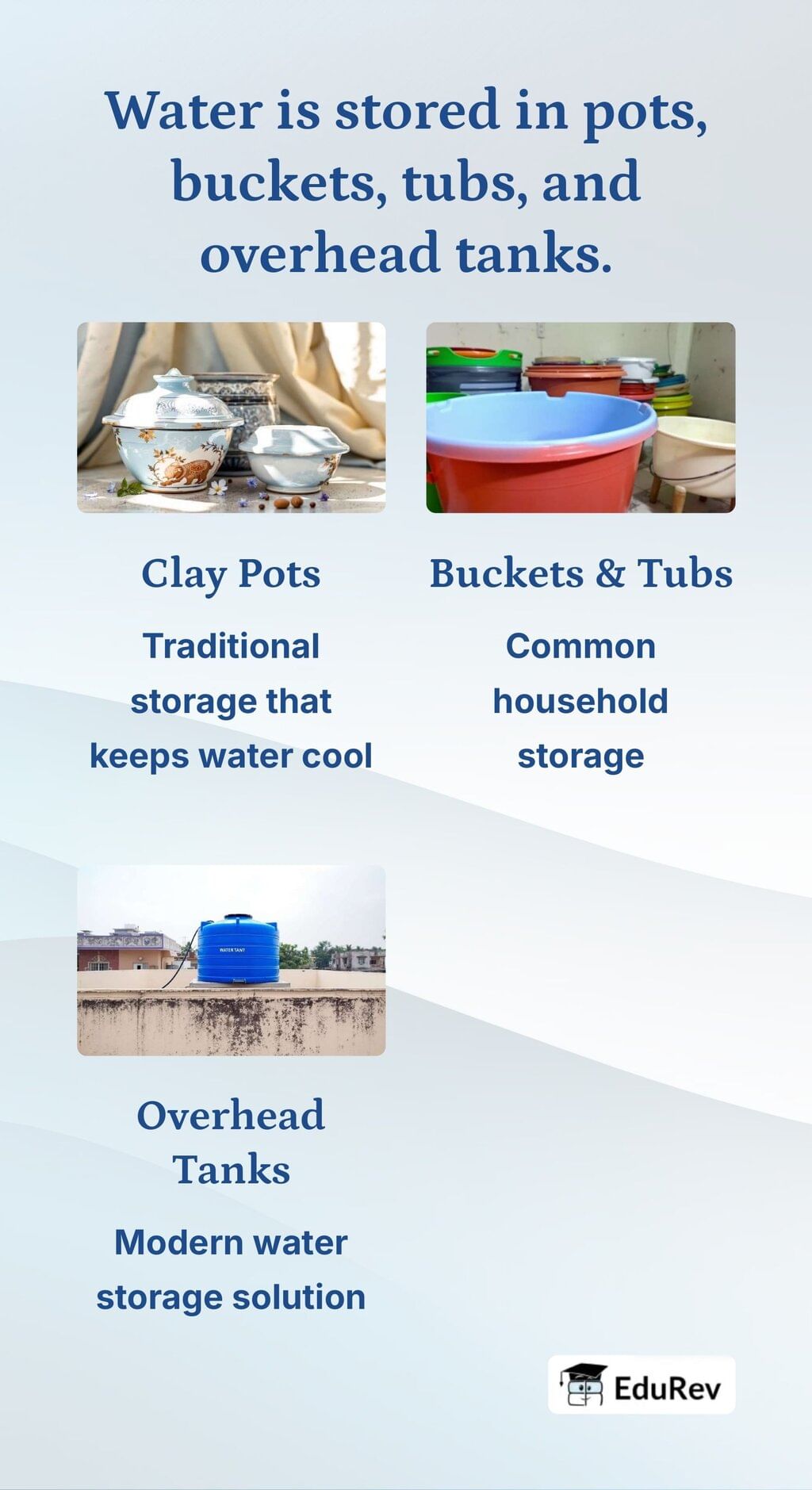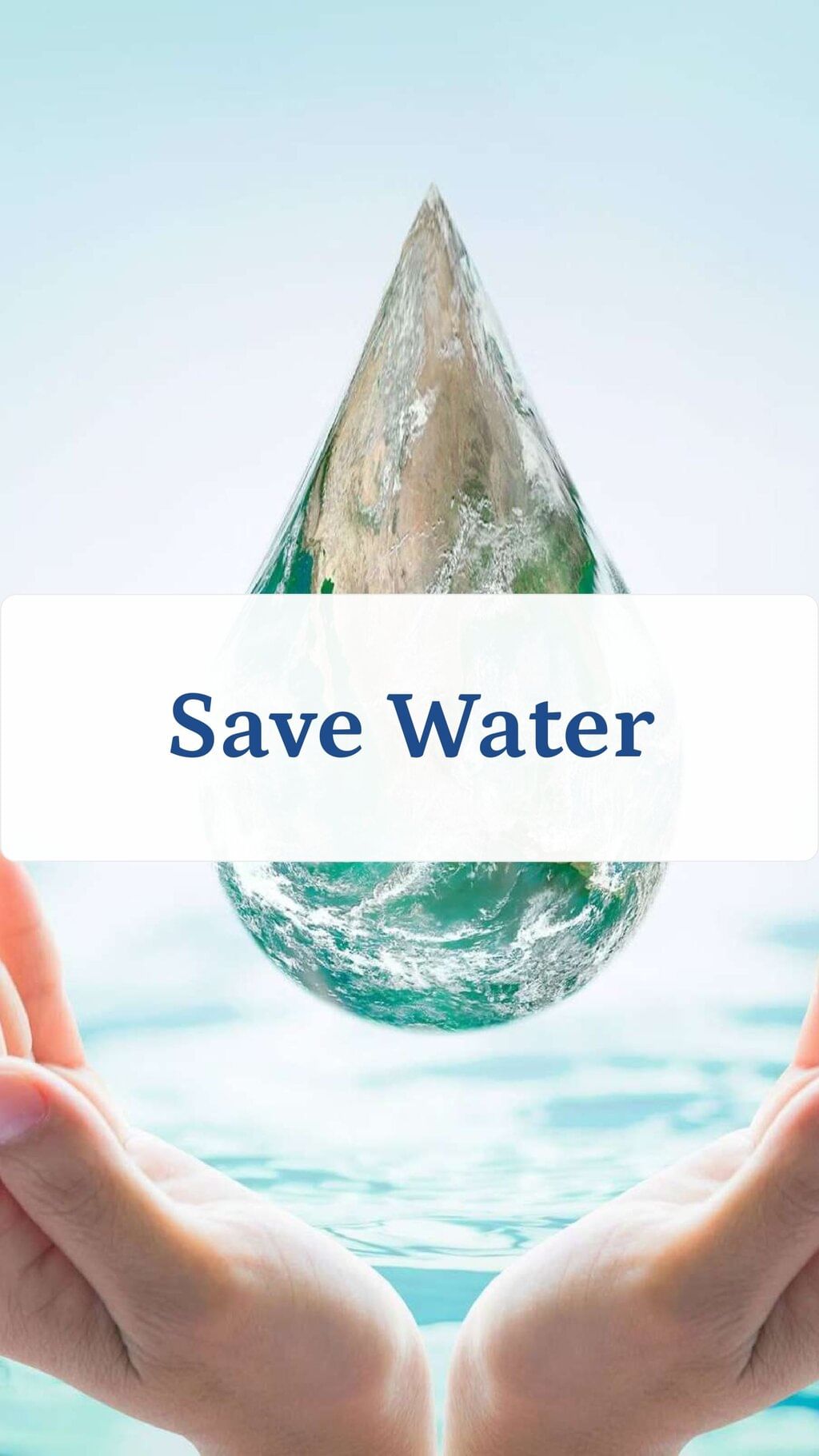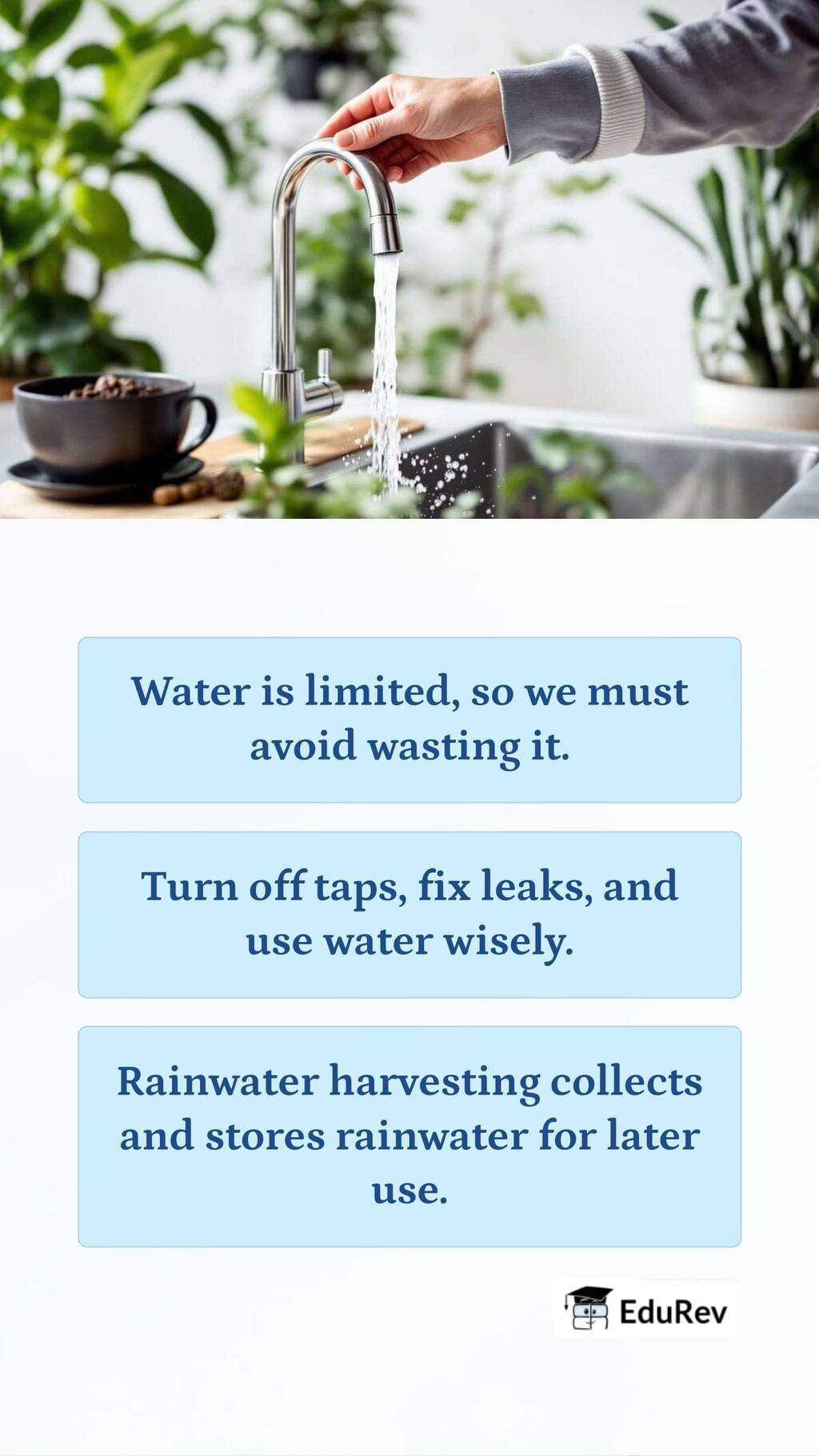 Unlock all Flashcards with EduRev Infinity Plan Starting from @ ₹99 only
|
Class 2 Exam > Science for Class 2 > Flashcards: Water
|
11 videos|104 docs|24 tests
|
FAQs on Flashcards: Water Flashcard - Science for Class 2
| 1. What are the main sources of water on Earth? |  |
Ans. The main sources of water on Earth include oceans, rivers, lakes, groundwater, and glaciers. Oceans cover about 71% of the Earth's surface and contain the majority of the planet's water. Freshwater sources, such as rivers and lakes, are crucial for drinking water and agriculture, while groundwater is stored beneath the Earth's surface and is a significant source for many communities.
| 2. Why is water considered essential for life? |  |
Ans. Water is essential for life because it is a vital component of all living organisms. It helps in various biological processes, including digestion, circulation, and temperature regulation. Water also acts as a solvent, allowing nutrients and minerals to dissolve and be transported within organisms, making it crucial for maintaining health and supporting life.
| 3. What is the water cycle and why is it important? |  |
Ans. The water cycle, also known as the hydrological cycle, is the continuous process by which water moves through the environment, involving evaporation, condensation, precipitation, and runoff. It is important because it regulates the Earth's climate, helps distribute heat, and replenishes freshwater sources, ensuring that ecosystems and human activities have the necessary water supply.
| 4. How does water pollution affect the environment? |  |
Ans. Water pollution negatively impacts the environment by contaminating water sources with harmful substances, which can harm aquatic life and disrupt ecosystems. Polluted water can lead to the death of fish and other organisms, reduce biodiversity, and make water unsafe for human consumption and recreation, ultimately affecting the health of entire communities.
| 5. What measures can be taken to conserve water? |  |
Ans. To conserve water, individuals and communities can adopt practices such as fixing leaks, using water-efficient appliances, collecting rainwater, and reducing water usage in daily activities like showering and gardening. Public awareness campaigns and policies promoting sustainable water management can also significantly contribute to water conservation efforts.
Related Searches




